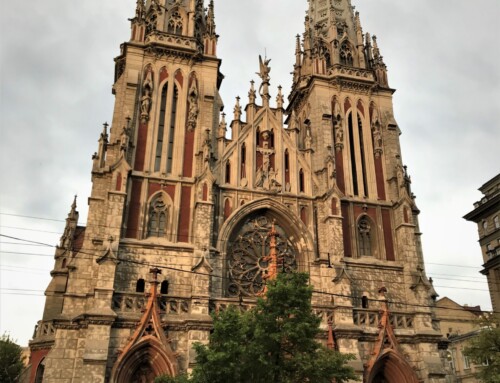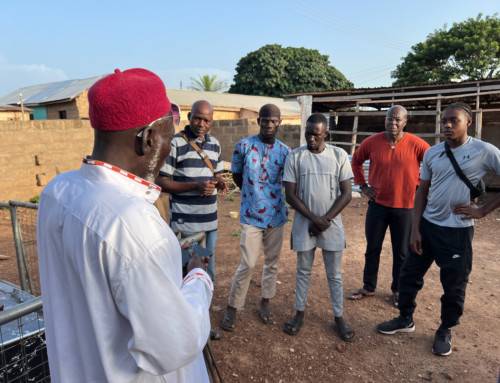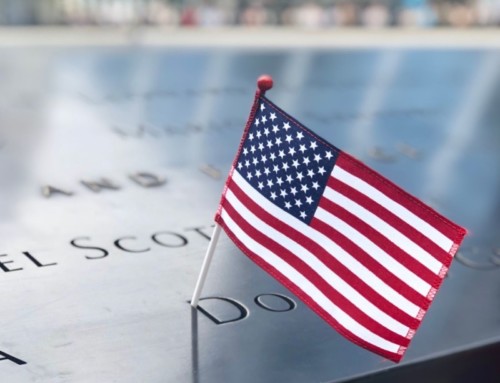 When I was 8 years old, my family lived in Victoria, Texas. We had nothing, but my eight-year-old self didn’t know that; I had a loving and caring family, anchored by a rock-solid and hardworking mom.
When I was 8 years old, my family lived in Victoria, Texas. We had nothing, but my eight-year-old self didn’t know that; I had a loving and caring family, anchored by a rock-solid and hardworking mom.
My stepdad had recently been sent to prison, and this family – my mom and more than a half-dozen kids – had already shuffled around a couple of times: first from Edna, then to Port Lavaca, and then back to Victoria.
My mom was looking for a job while trying to go to school, naturally concerned about what she was going to do – what she could do – for her family. She worked at a convenience store during the day, and at night attended a data processing class at a community college. I remember it so well because she would explain to us kids that someday all the information we’d need would be stored on these big floppy disks, and we’d use punch cards to enter the numbers into the machine, and she’d hold one up for our inspection.
But mom wasn’t in a position to outpace technology; it seemed like she had just finished her classes when what she learned was obsolete.
One night she told us she was going back to school, this time to become a nurse, but things would be okay because she had another job to help us out, and Alden, my older brother – he must’ve been 16 – was going to get a job, too.
The family car that carted this single mom and seven kids around (my oldest sister, Barbara, had married and moved out by then) was an old, green Plymouth Fury. The size of a boat, it had ample room to cart my stepbrother Jimmy, Alden, Martha, Sara, me and my little brother Pete around.
That green monster of a car also played an important role in one Christmas I remember very vividly.
It was dark, and we had just left an old office building. I was squeezed next to my brother, Walter, who had jumped into the back of the car and handed me a big brown box to hold. “USDA Surplus” was written on the top in black letters, and inside was a block of cheddar cheese wrapped in wax paper. I kept getting yelled at for picking through the paper to the cheese. I saw the familiar site of a powdered milk box peek through the top of the brown bag in Walter’s lap.
Before the USDA Food Stamp program, surplus foods were distributed to needy families, and one of the most common supplies was Carnation powdered milk. If you’ve never had it, you’re not missing much, but my mother could make some good gravy from that box.
We made several stops that night, but the most memorable one was to a Christmas tree lot. Leaning against a fence made of hog-pen wire were several trees, mostly scrawny and beaten, with a few full and green. Our selection couldn’t have had more than a handful of good limbs on it. Alden paid for it with some cash he had in his pocket and some more he pulled from Walter’s hand. For some reason, I doubt it was the full asking price.
(About 10 years ago when my own children were of the age to be awed by such things, I bought a 20-plus foot tree for my family, and we had a heckuva time getting it set up in our living room. Even at 40 years old, I was proud of that darn tree, probably because I remember the tree we left that lot with all those years ago.)
We stuff our prized tree into the trunk of the car, tying the lid down with some twine. I rode home staring out the back window with Pete to make sure it didn’t fall out.
On the way home, a policeman stopped us for having a missing headlight. I think Mom feigned surprise, saying something about not knowing about it, and he advised us to get it taken care of and to have a merry Christmas. We all giggled with relief as we drove away, rejoicing in whatever sympathetic stirring caused him to let us move along with our tree.
We put the tree up in the front window of the flat we lived in and we decorated it with bright red bulbs – light bulbs, not Christmas bulbs. We tossed silver icicles onto it, wrapped a blanket around the base and called it a night. I fell asleep on the floor, because I just knew that Santa would arrive with my bike, and I wanted to see it the moment it arrived.
I woke up down the hall, I think in my mother’s bed, probably crowded next to my younger brother at the edge of the bed. I distinctly remember walking down the hall on the cold tile and hearing the noise of my brothers and sisters as I approached the tree. When I walked into the room, under the tree were several presents. Not a lot, mind you, but enough to make my eyes open wide.
I don’t remember if I charged the tree in search of the bike or just stood in awe at the sight. Knowing me and my selfishness, I probably rushed the tree and sorted through the packages looking for anything labeled “TOMMY,” and wondering where the bike could be hidden.
I know I didn’t get a bike that year, but I did get something. It may have been a ball, and maybe a toy car. And I do recall a favorite coat that I had that year in Victoria. Whatever the gifts were isn’t important today; I know I got enough to help me continue to believe in Christmas to this day.
And from whom, I don’t know. It wasn’t from the convenience store and gas station wages, of that I’m sure.
Most likely, it was from a family, like yours and mine, who gave to a church or picked a few names off a local angel tree. I thank God for angels in this life and throughout mine who have made special memories for children in need.
Later Christmas morning, I watched as my mother moved about the small kitchen, humming as she turned those bags of donated food into a Christmas meal. There was something very special about that time in our life, and there is still something very special about that Christmas.
May we all keep special Christmas moments in our hearts, and pass that Christmas spirit along to those who need to believe in even the smallest Christmas miracles.
THOMAS GRAHAM




